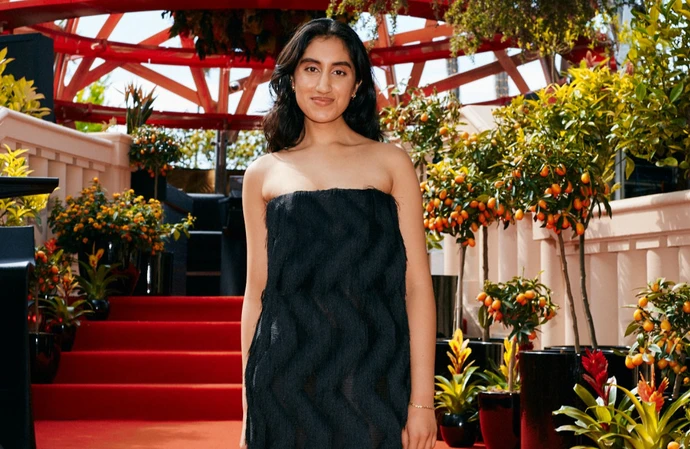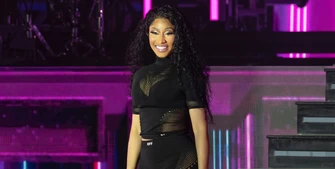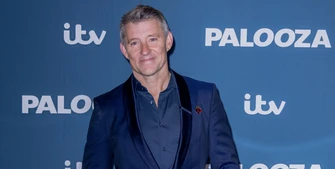'People are starting to believe in a more equal future for women in film...' Ambika Mod positive about movie industry's future
'One Day' star Ambika Mod attended the Mastercard Women in Film panel in Cannes last weekend and says "there’s a real sense that change is taking hold" in terms of opportunities for females in the industry.

'One Day' star Ambika Mod says "people are starting to believe in a more equal future for women in film".
The 29-year-old actress-and-comedian - who plays Emma Morley in the Netflix romantic drama series - attended the Mastercard Women in Film panel in Cannes last weekend which was led by Beatrice Cornacchia, EVP Marketing and Communications APEMEA at Mastercard to discuss the state of the industry and what’s next for women in film. Film director Nisha Ganatra also participated.
Ambika can see the "positive shift" in the industry when it comes to equal opportunities for woman in film but insists there is more work to be done, especially when it comes to jobs behind the camera.
She said: “It’s great to see such a positive shift on screen, as the new research from Mastercard reflects.
"There’s a real sense that change is taking hold, and that people are starting to believe in a more equal future for women in film. It’s something I’ve seen in my own experience, progress is happening, and doors are starting to open.
"But the findings are also a timely reminder that we’re not there yet - especially when it comes to behind-the-scenes roles. If we want lasting change, we need to make sure opportunities exist not just in front of the camera but across every part of the industry.”
The panel follows research from Mastercard which found that despite 48 per cent of women in film believing progress is going backwards, three quarters are confident the next generation will have more opportunities than they did.
Despite a growing cultural spotlight on female storytelling and representation, Mastercard’s newly released Women in Film research reveals that aspiring and current female filmmakers across the UK face stark career barriers yet remain hopeful for the future of the industry.
Commissioned by Mastercard in May 2025, the research provides a candid snapshot of the evolving landscape for female creatives across UK, France, Italy, Spain, Germany and Poland. Its release coincides with Mastercard’s proud sponsorship of the Cannes Film Festival for the 10th consecutive year, as part of its ongoing commitment to nurturing the future of film in Europe.
Surveying 1,000 women across the UK who are either working in film or aspiring to do so, the survey found that nearly a quarter (24 per cent) are choosing an alternative career path instead. This jumps to almost half (43 per cent) when surveying respondents across Europe. The participants cite a lack of confidence and fear of failure (38 per cent), not knowing anyone in the industry (34 per cent) and limited access to funding and resources (22 per cent) as the top reasons why.
Almost half of UK respondents (48 per cent) feel progress for women in film is reversing, with 58 per cent citing a rise in more subtle barriers compared to five years ago.
This is in part due to the belief that while representation of women on screen has improved, behind-the-scenes roles still lack parity (74 per cent) and that there is more pressure on women to “prove themselves” than their male counterparts.
Despite this, there is optimism for the future of women in film. Three quarters (75 per cent) agree that opportunities for women in leadership roles such as directing and producing have improved and a similar number believe women are being heard more in creative and decision-making spaces in the industry (72 per cent).
Over three quarters (76 per cent) feel confident that the next generation will have more opportunities in the film industry than previous generations. This belief is driven by young people being more socially conscious and driven to tell authentic stories (41 per cent), as well as greater access to film education (38 per cent), easier access to tools and platforms for creating and sharing content (36 per cent) and increased representation of diverse voices and stories (34 per cent).
Access to the arts and film early on in life arises as a key contributor to opportunities and access for women in film.
A third (33 per cent) of respondents agree that creative programs being introduced in schools earlier gives them confidence for generations to come, and a fifth (21 per cent) saying early access to film education in school helped them pursue a career in film.
Cornacchia, EVP Marketing and Communications APEMEA at Mastercard, said: "At Mastercard, we believe stories shape culture, and empowering more women to tell theirs is essential for a thriving, representative film industry. This research shines a spotlight on the challenges still faced by women- particularly those just starting out- and makes clear that access, visibility and support remain key barriers to progress. Meaningful investment, mentorship and structural change are not optional; they are urgent and necessary steps toward unlocking the full creative potential of this generation.”
The research carried out by Mastercard also revealed the most inspirational female role models in the industry:
Top 10 Most Inspiring Women in Film:
Emma Watson
Natalie Portman
Viola Davis
Lupita Nyong’o
Keira Knightley
Salma Hayek
Sofia Coppola
Penélope Cruz
Charlize Theron
Monica Bellucci







